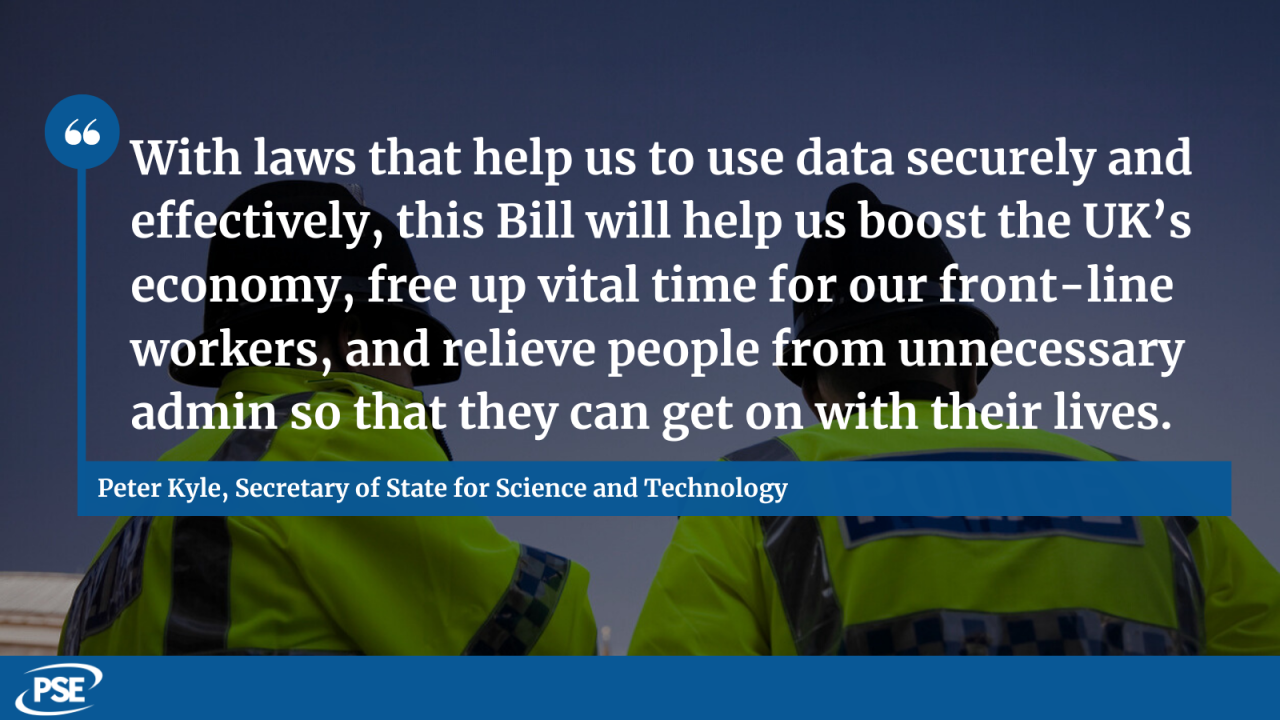The government has confirmed a new bill that will significantly improve the way that public services are delivered, by increasing the use of data.
Bringing the potential to boost the economy by £10 billion, whilst also freeing up millions of staff hours across the NHS and police, the Data Use and Access Bill will unlock data use that is secure and effective, whilst not increasing pressure on national finances. By doing this, the bill will help to contribute to the government’s five missions to ‘rebuild Britain.’
One of the main features of the bill will ensure that police officers face reduced bureaucracy so that they can focus on tackling crime rather than admin. This is expected to free up 1.5 million hours of their time every year.
Alongside this, the NHS will also benefit from the easier transferring of patients’ data, allowing frontline staff to make more informed decisions for patients, thus freeing up around 140,000 hours of staff time annually.
Whilst data use will be enhanced, safeguards will remain in place to track how personal data is used, so that patients and victims of crime can have the peace of mind that their data is not being used inappropriately.
The bill has been delivered by the Department for Science, Innovation and Technology, and has three main objectives. These are to grow the economy, to improve public services in the UK, and to make people’s lives easier. The bill will be accompanied by a ‘revamped’ Information Commissioner’s Office, with this ensuring that personal data is protected to the highest standards.

Peter Kyle, Science and Technology Secretary, said:
“Data is the DNA of modern life and quietly drives every aspect of our society and economy without us even noticing – from our NHS treatments and social interactions to our business and banking transactions.
“It has the enormous potential to make our lives better, boosting our National Health Service, cutting costs when we shop, and saving us valuable time.
“With laws that help us to use data securely and effectively, this Bill will help us boost the UK’s economy, free up vital time for our front-line workers, and relieve people from unnecessary admin so that they can get on with their lives.”
Secretary of State for Health and Social Care, West Streeting, also commented:
“The NHS is broken, but imagine its enormous potential if each part of the system communicated properly with each other.
“That starts with sharing vital medical records between healthcare providers because it shouldn’t be the patient’s responsibility to join the dots for their doctor.
“How can a GP diagnose a problem without knowing about someone’s recent hospital surgery?
“This Bill and our Ten Year Health Plan will ensure important data flows safely and securely through the NHS, freeing up staff time and speeding up patient care.
“I know people worry about Big Brother, which is why data will only be shared to the most relevant staff and anybody using data must comply with strict security protocols.”
It is expected that this move will generate around £10 billion for the UK economy over the course of a decade, as it legislates on data sharing to generate benefits for consumers and businesses. This will be done as it creates ideal conditions for the future of open banking and the growth of new smart data schemes.
Introducing this now, brings the potential to pave the way for the model to expand into other sectors, including the energy sector, allowing customers to compare utility prices and find better deals to reduce their energy use – leading to tech innovation and improved competition.
Image credit: iStock



















